Canada, known as the “Great White North,” is the second-largest country in the world by land area and is renowned for its stunning natural beauty, multicultural society, and rich history. With vast expanses of wilderness, bustling cosmopolitan cities, and a welcoming culture, Canada offers a wide range of experiences for both residents and visitors.
From the majestic Rocky Mountains to the vibrant urban centers of Toronto and Vancouver, Canada is a country of contrasts and opportunities. Its history is deeply intertwined with indigenous cultures, colonial exploration, and its evolution into a modern, diverse nation.
Table of Contents
Geography
Canada spans approximately 9.98 million square kilometers, making it the second-largest country in the world by total area. Situated in North America, it is bordered by the United States to the south, the Atlantic Ocean to the east, the Pacific Ocean to the west, and the Arctic Ocean to the north.
Canada’s geographical features are incredibly diverse, including mountain ranges, vast prairies, dense forests, and numerous lakes and rivers. The country is divided into ten provinces and three territories, each offering unique landscapes and climates.
The Canadian Shield, one of the world’s largest geologic formations, covers much of eastern and central Canada and is known for its rugged terrain and ancient rock formations.
The Rocky Mountains stretch into western Canada, creating a dramatic landscape with snow-capped peaks and deep valleys. The Great Lakes, shared with the United States, form the largest group of freshwater lakes in the world, providing vital water resources and recreational opportunities.
The northern regions of Canada, including the Arctic Archipelago, are characterized by icy landscapes and polar climates, adding to the country’s diverse geographical profile.
States of Canada
Canada does not have states; instead, it is divided into provinces and territories. There are 10 provinces and 3 territories in Canada.
| Provinces | Capital |
|---|---|
| Alberta | Edmonton |
| British Columbia | Victoria |
| Manitoba | Winnipeg |
| New Brunswick | Fredericton |
| Newfoundland and Labrador | St. John’s |
| Nova Scotia | Halifax |
| Ontario | Toronto |
| Prince Edward Island | Charlottetown |
| Quebec | Quebec City |
| Saskatchewan | Regina |
| Territories | Capital |
|---|---|
| Northwest Territories | Yellowknife |
| Nunavut | Iqaluit |
| Yukon | Whitehorse |
History
Canada’s history is a tapestry of indigenous cultures, European exploration, and the development of a modern nation. The first inhabitants of Canada were diverse Indigenous peoples, including the Inuit, First Nations, and Métis, who lived in harmony with the land for thousands of years before European contact. In the early 16th century, explorers such as Jacques Cartier and Samuel de Champlain began to chart the land, leading to the establishment of French and later British colonies.
The 18th century was marked by conflicts between European powers over control of Canadian territories. The Seven Years’ War culminated in the British acquiring most of New France, leading to significant cultural and political changes. In 1867, the British North America Act established the Dominion of Canada, uniting four provinces under a federal system of government. This was a pivotal moment in Canada’s history, setting the stage for its growth into a fully autonomous nation.
The 20th century saw Canada become increasingly influential on the world stage. The country played significant roles in both World Wars and contributed to international peacekeeping efforts. In 1982, Canada achieved full sovereignty with the patriation of the Constitution, which included the Charter of Rights and Freedoms. Today, Canada is recognized for its multiculturalism, progressive policies, and its role as a global leader in various fields, including environmental sustainability and human rights.
Top Ten Must-Visit Destinations
1. Banff National Park
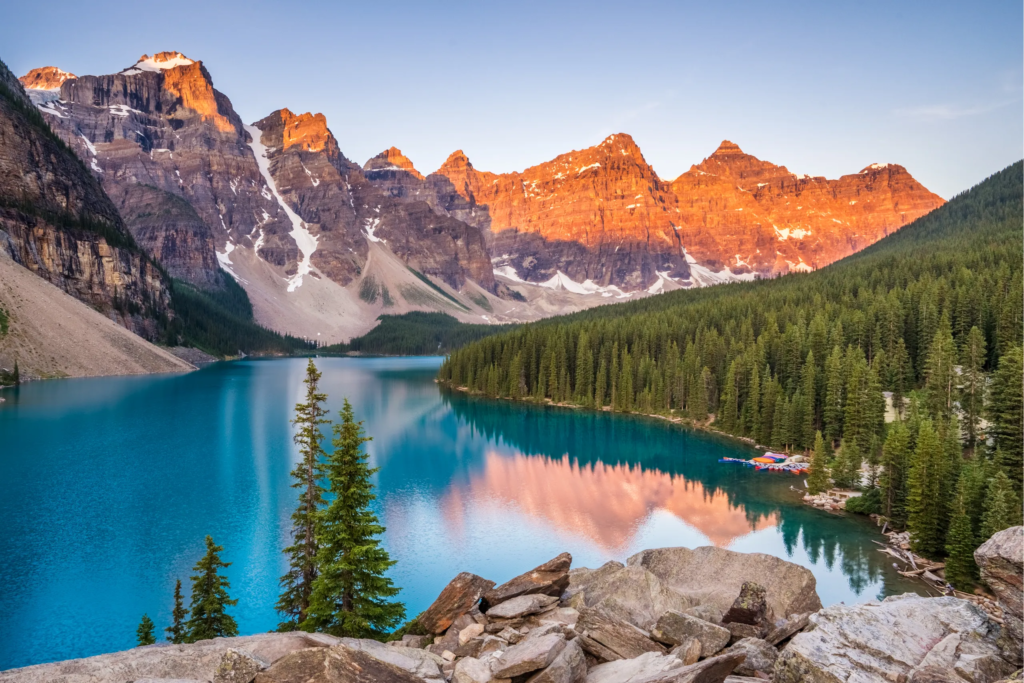
Located in Alberta’s Rocky Mountains, Banff National Park is renowned for its stunning natural beauty. The park features turquoise lakes, snow-capped peaks, and abundant wildlife. Visitors can explore Lake Louise, hike through the picturesque landscapes, or take a scenic drive along the Icefields Parkway, which offers breathtaking views of glaciers and rugged terrain.
2. Vancouver
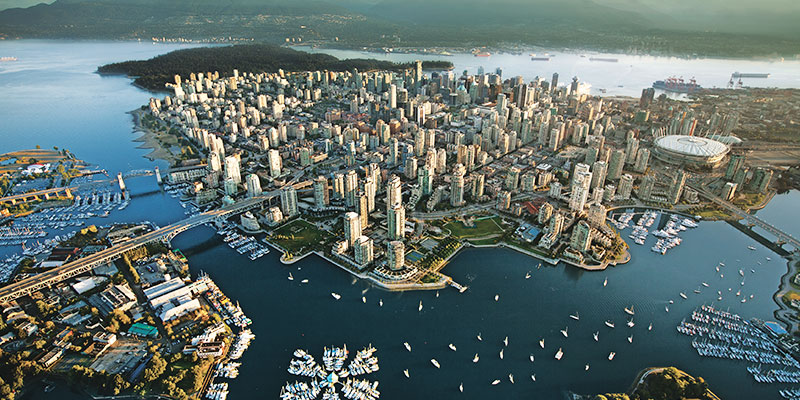
Vancouver, a vibrant city on the west coast of Canada, is known for its stunning natural surroundings and diverse cultural scene. Surrounded by mountains and the Pacific Ocean, Vancouver offers numerous outdoor activities, including hiking, skiing, and sailing. The city is also famous for its landmarks such as Stanley Park, Granville Island, and the Capilano Suspension Bridge.
3. Toronto
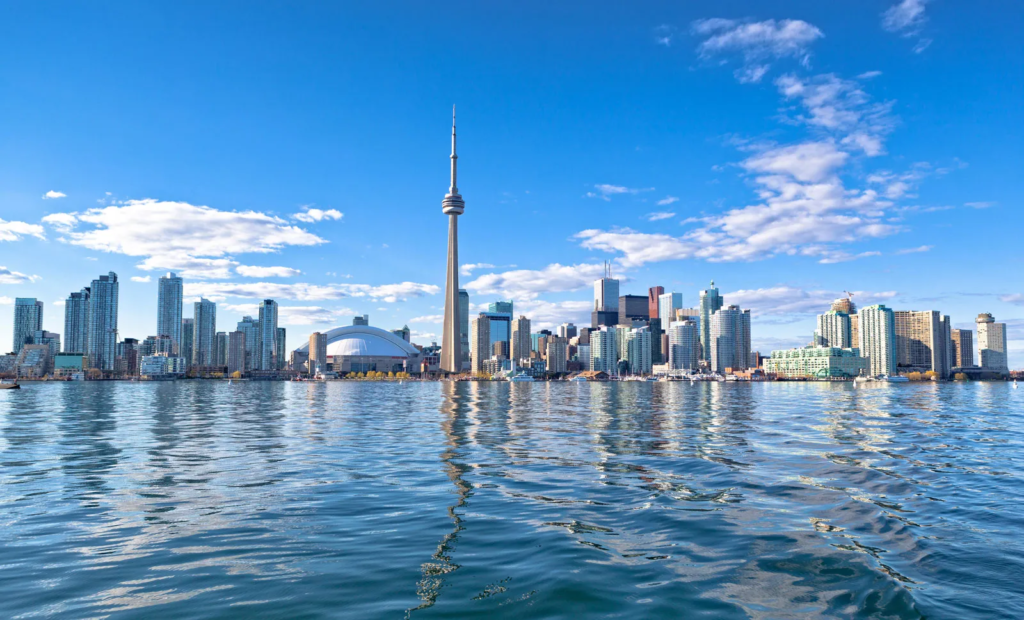
As Canada’s largest city, Toronto is a bustling metropolis with a rich cultural landscape. The city is home to iconic landmarks like the CN Tower, which offers panoramic views of the city. Visitors can explore the Royal Ontario Museum, catch a show in the Entertainment District, or stroll through diverse neighborhoods such as Kensington Market and the Distillery District.
4. Montreal
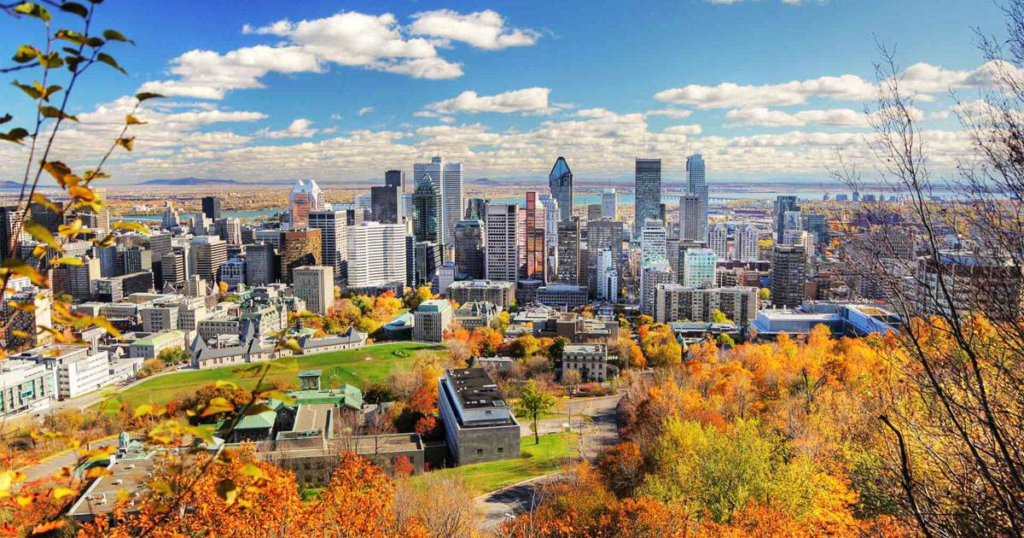
Montreal, located in Quebec, is known for its unique blend of French and English cultures. The city boasts historic architecture, vibrant arts scenes, and a dynamic culinary landscape. Key attractions include Old Montreal, the Montreal Museum of Fine Arts, and the annual Montreal International Jazz Festival. The city’s diverse festivals and rich history make it a must-visit destination.
5. Quebec City
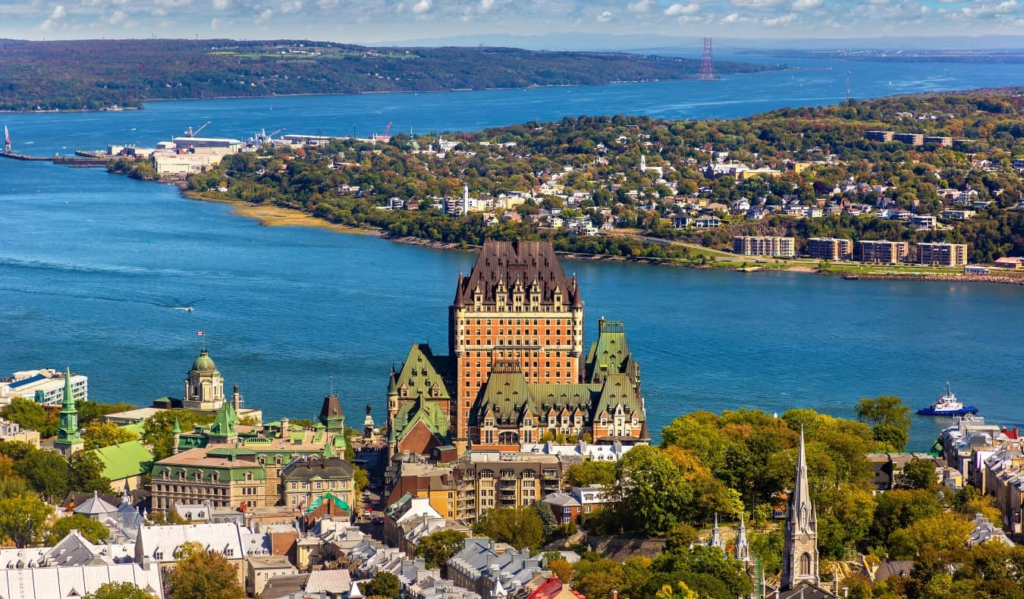
Quebec City is renowned for its historic charm and European feel. As one of North America’s oldest cities, it features cobblestone streets, historic buildings, and the famous Château Frontenac. The city’s Old Town, a UNESCO World Heritage site, is a highlight, offering visitors a glimpse into Canada’s colonial past with its historic fortifications and vibrant cultural events.
6. Niagara Falls
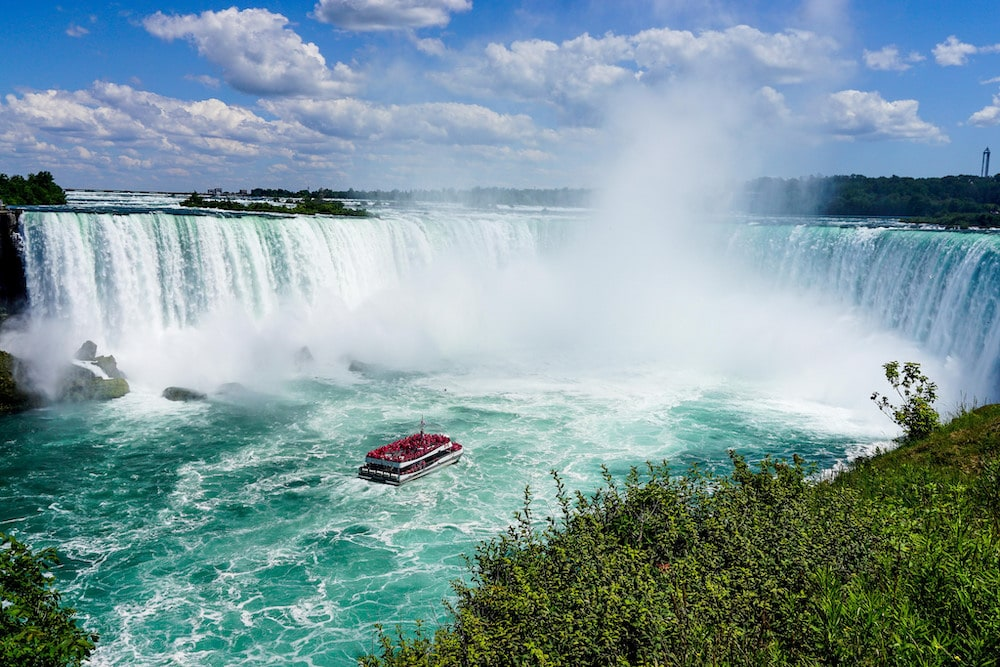
One of the most famous natural attractions in the world, Niagara Falls is located on the border between Canada and the United States. The falls are a spectacular sight, with millions of gallons of water cascading over the cliffs. Visitors can take boat tours to get close to the falls, explore the surrounding parks, or visit the nearby Niagara SkyWheel for panoramic views.
7. Ottawa
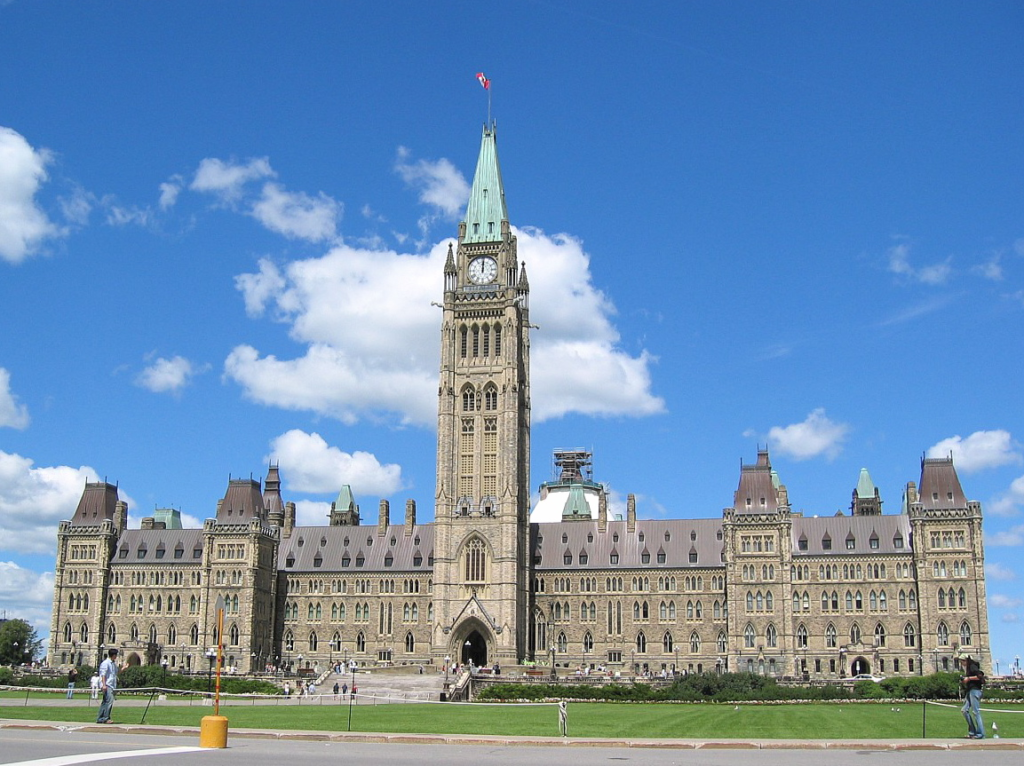
As the capital of Canada, Ottawa is home to many significant national landmarks and institutions. Key attractions include Parliament Hill, where visitors can witness the Changing of the Guard ceremony, and the National Gallery of Canada, which houses an extensive collection of Canadian and international art. The city’s picturesque canal system is also a highlight, especially during the Winterlude festival.
8. Prince Edward Island
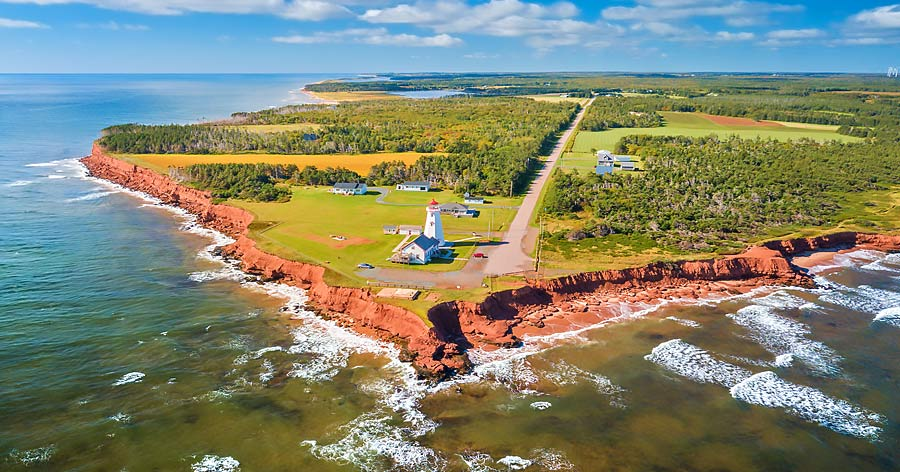
Prince Edward Island, known for its rolling countryside and red sand beaches, is a picturesque destination with a rich literary history. The island is famous as the setting of Lucy Maud Montgomery’s “Anne of Green Gables.” Visitors can explore Green Gables House, enjoy the island’s scenic landscapes, and sample local seafood and dairy products.
9. Jasper National Park
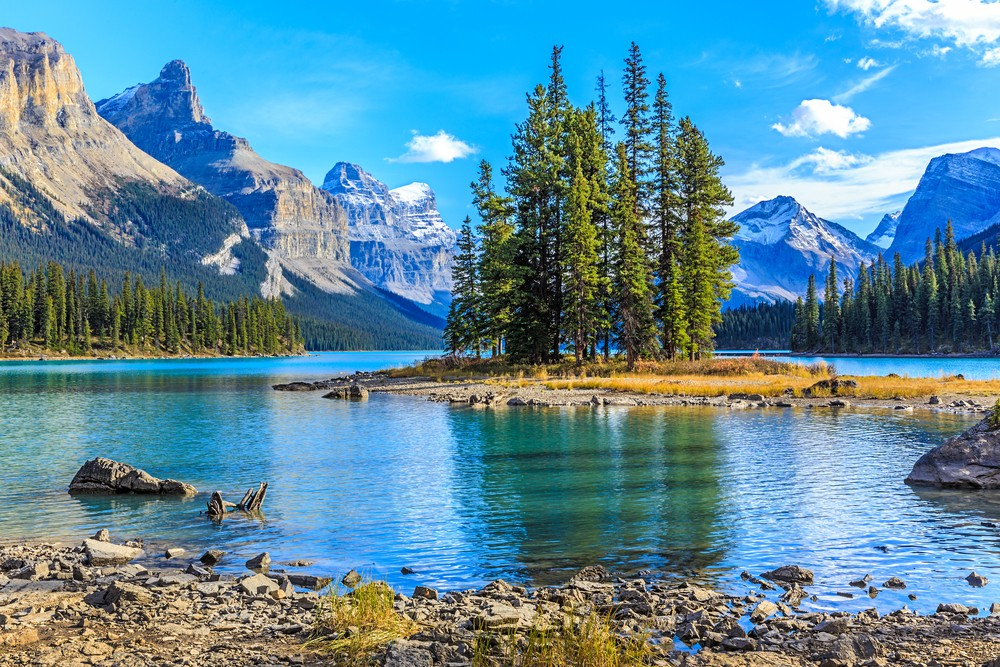
Located in Alberta, Jasper National Park is renowned for its stunning wilderness and outdoor activities. The park features majestic mountain scenery, clear lakes, and extensive trail systems for hiking and biking. Key attractions include Maligne Lake, known for its scenic boat tours, and the Jasper SkyTram, which provides panoramic views of the surrounding landscape.
10. Whistler
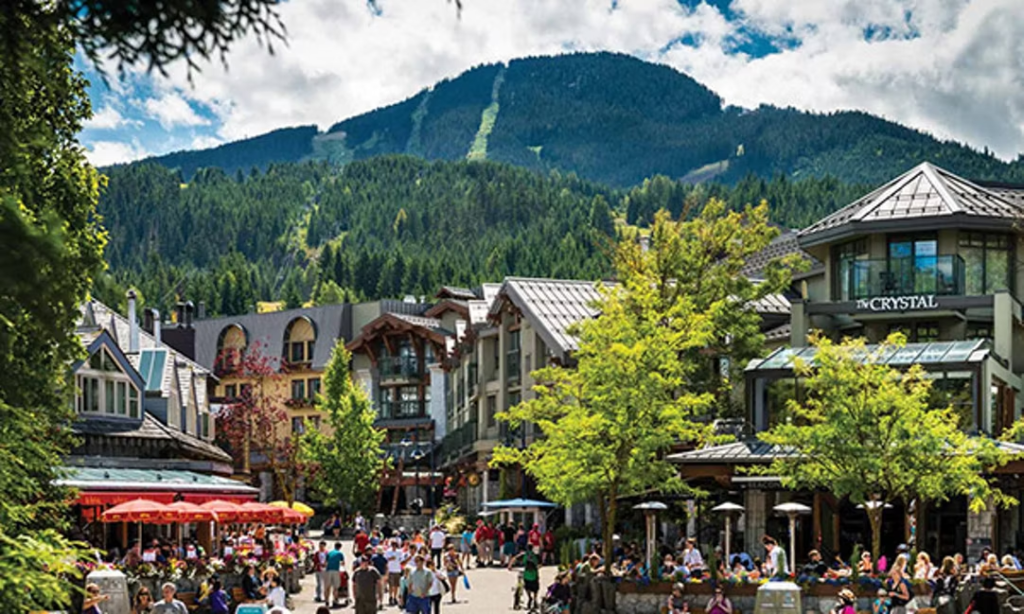
Whistler, located in British Columbia, is a premier destination for outdoor enthusiasts. The town is famous for its world-class ski resorts and outdoor adventure opportunities. During the winter, visitors can enjoy skiing and snowboarding, while the summer months offer hiking, mountain biking, and golf. The Whistler Blackcomb ski area is one of the largest and most popular in North America.
Culture
Canadian culture is a rich tapestry woven from its indigenous roots and the influences of its diverse immigrant population. English and French are the official languages of Canada, reflecting the country’s colonial history and bilingual nature. The cultural landscape is also enriched by numerous Indigenous languages and traditions, which are celebrated and preserved across the nation. The Canadian government supports cultural diversity through policies and initiatives that promote multiculturalism and inclusivity.
Traditions in Canada vary widely, influenced by the country’s diverse ethnic backgrounds and regional differences. Celebrations such as Canada Day on July 1st reflect national pride and unity, while cultural festivals and events showcase the rich heritage of various communities. Canadian cuisine features a mix of influences, including traditional Indigenous dishes, French-inspired fare, and international cuisines brought by immigrants. The arts play a significant role in Canadian culture, with contributions to literature, music, film, and visual arts making a global impact.
Festivals
Canada hosts a wide range of festivals that celebrate its diverse cultural heritage and seasonal beauty. The Montreal International Jazz Festival is one of the largest jazz festivals in the world, attracting musicians and visitors from around the globe. The festival features performances by renowned artists and provides a platform for emerging talent. Held annually in Montreal, this event is a highlight of the city’s vibrant cultural calendar.
The Calgary Stampede is another major festival, celebrated every July in Calgary, Alberta. Known as “The Greatest Outdoor Show on Earth,” the Stampede is a rodeo and exhibition that showcases western culture and heritage. Visitors can enjoy rodeo events, live music, and various family-friendly activities. The event has become a significant cultural and economic highlight for the region.
Economy
Canada’s economy is one of the most stable and diversified in the world. The country’s economic strength is driven by a mix of natural resources, manufacturing, and service industries. Canada is rich in natural resources, including oil, natural gas, minerals, and timber, which play a crucial role in its economy. The energy sector, particularly oil and gas extraction, is a significant contributor to the national GDP, with Alberta being a major hub for oil sands production.
The service sector is another key component of the Canadian economy, encompassing industries such as finance, healthcare, education, and retail. Major financial centers like Toronto and Vancouver are home to numerous national and international banks, insurance companies, and investment firms. Canada’s strong emphasis on technology and innovation has also led to growth in tech sectors, with cities like Toronto, Vancouver, and Montreal emerging as important tech hubs. Additionally, Canada’s commitment to trade and international relations has solidified its position as a key player in the global market.
Top Eight Most Famous Food








Ten Interesting Facts About Canada
- Canada has the longest coastline of any country, stretching over 202,080 kilometers.
- The country is home to more than 2 million lakes, accounting for a significant portion of the world’s freshwater supply.
- Canada has two official languages: English and French.
- The CN Tower in Toronto was the world’s tallest free-standing structure until 2009.
- The Royal Canadian Mounted Police, often referred to as the Mounties, are known for their iconic red uniforms and horse patrols.
- Canada is one of the few countries with its own Arctic Archipelago, comprising over 36,000 islands.
- The Canadian Rockies are among the most visited mountain ranges in the world, attracting millions of tourists each year.
- The national sport of Canada is ice hockey, and the country has a strong tradition in the sport.
- Canada was the first country to establish a national park system, with Banff National Park being the first in 1885.
- The maple leaf, a symbol of Canada, is featured on the national flag and represents the country’s natural beauty and diversity.
Conclusion
Canada is a country that embodies natural beauty, cultural richness, and a welcoming spirit. From its vast wilderness and picturesque landscapes to its dynamic cities and multicultural heritage, Canada offers an array of experiences that captivate visitors and residents alike. With a history of indigenous cultures and colonial influence, Canada has evolved into a modern nation known for its inclusivity and innovation. Whether exploring the great outdoors, immersing oneself in vibrant cultural events, or discovering the diverse history, Canada stands as a testament to the power of unity and diversity.
